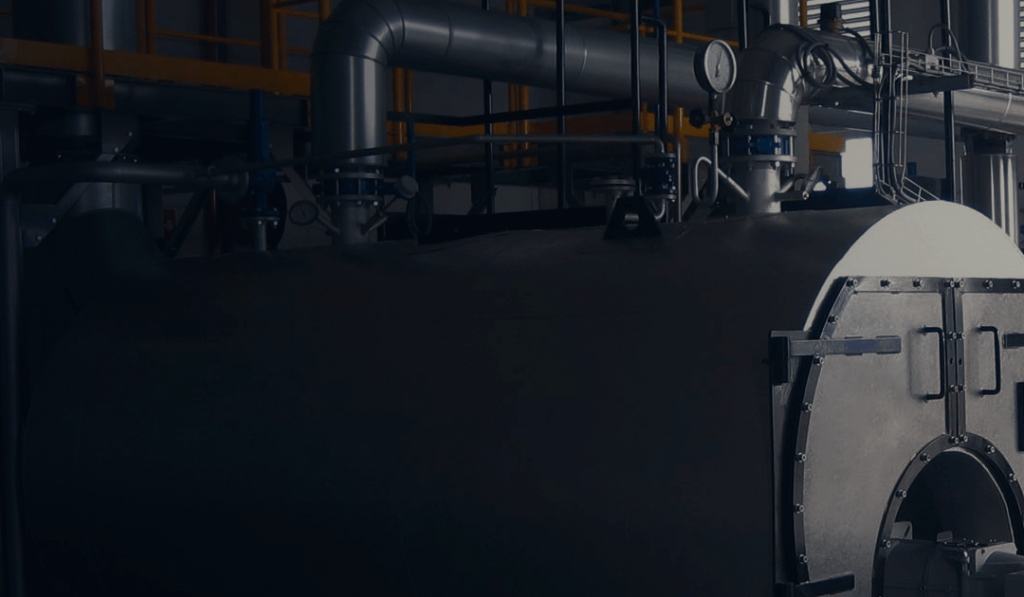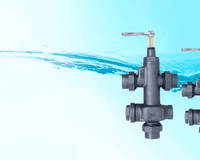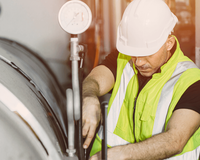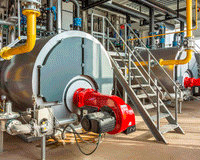Boiler accidents due to lack of water: what to do and how to prevent them?

Boiler accidents always have a huge impact on industry and society, whether due to the destruction caused or the lives lost. But did you know that among the various causes of boiler accidents , one of the main ones, fatal or not, is the lack of water?
The purpose of every boiler is to heat water, transforming it into pressurized steam, which will be used to power thermal machines. However, an inefficient water supply system can cause the boiler tubes to overheat, causing, in more serious cases, the collapse of the structure.
Therefore, it is very important that you know what to do if the boiler feed water is inefficient, as well as what preventive measures are available to prevent this problem from occurring.
Lack of feed water: Main cause of boiler accidents
Boilers are equipment designed to produce and accumulate steam under high pressure and temperature , using different energy sources for this purpose, that is, the function is to generate steam through the evaporation of water caused by the addition of heat.
In this way, combustion (burning of fuel) provides heat to the tubes. These are cooled by water, which, when absorbing heat, is heated and evaporates, being transformed into steam.
Therefore, water evaporation acts as an activator of the boiler's water supply system, which keeps the level within acceptable (high and low) limits. However, inefficiency of the water supply system can be a problem, as it can cause the tubes to be constantly heated.
In this condition, 2 possible risk scenarios causing boiler accidents can be witnessed:
Scenario 1: When overheated, the tubes reach a limit temperature (600°C) at which they lose mechanical properties, causing the boiler to rupture in operation.
This causes water to leak from the boiler (pressurized) into the furnace (non-pressurized), which causes the steam to evaporate and expand instantly, resulting in the steam generator exploding.
Scenario 2: The tubes remain overheated, but without rupture. In the event of water replenishment, the contact of the feed water with the hot surface causes evaporation and instantaneous expansion, which can cause the tubes and sides of the boiler to rupture.
There is no water in the boiler: what should I do?
When there is a lack of feed water, the risk of boiler accidents becomes imminent, as the pressure reaches extremely high levels. Therefore, an emergency procedure must be adopted as soon as possible.
First, it is necessary to cut off the fuel, that is, cut off the oxygen so that no more heat is generated within the system. Then, it is essential to open the pressure valves located on top of the boiler, thus relieving the boiler pressure.
Finally, the boiler must be allowed to cool down, and this cooling process takes 1 to 3 days, depending on the boiler. The boiler operator should not “speed up” the cooling process, as the risk of accidents in boilers is still high when they are at high temperatures.
Preventive measures to avoid boiler accidents due to lack of water
Rather than adopting emergency measures to avoid boiler accidents, it is better to adopt preventive measures to ensure that this type of problem never happens. In this scenario, NR-13 has some recommendations that must be followed by all boiler operators, mainly related to inspection and maintenance.
Among the general provisions, NR-13 highlights the importance of a professional who is qualified to perform the function. It is his/her responsibility to monitor the construction project, operation, maintenance, inspection and inspection supervision of boilers and pressure vessels.
NR-13 states that boilers must be equipped with an automatic level control system, with interlocking that prevents overheating due to insufficient water supply.
It also states that category B boilers burning liquid or gaseous fuel must have a SGC (Combustion Management System), providing the following functions:
- Low level protection;
- Purge and ignition sequencing;
- Leak test of shut-off valves;
- High and low fuel pressure protection;
- Flame failure protection.
With these preventive measures, the risk of accidents in boilers due to lack of water will be significantly reduced, maintaining the proper functioning of the equipment, as well as the safety of the operators.
To learn more about boilers, valves and the main fuels used, we invite you to check out the MBX Machines blog .





